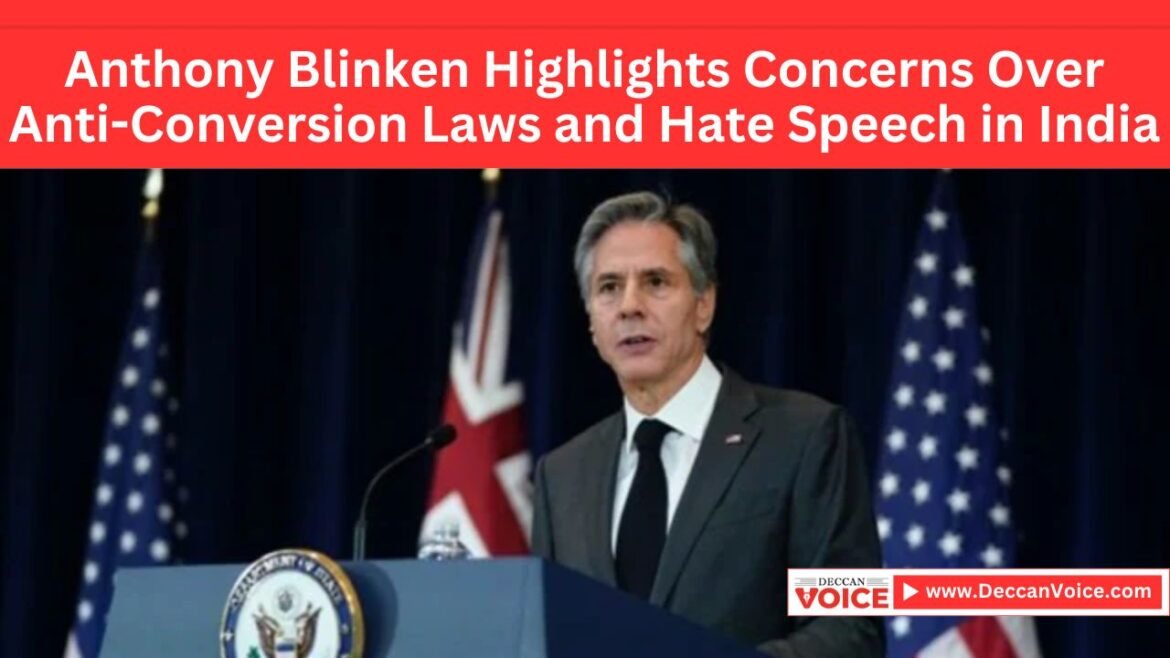Table of Contents
During a recent visit to India, US Secretary of State Anthony Blinken expressed concerns over the country’s anti-conversion laws and the rise in hate speech. These remarks come at a time when human rights issues are increasingly becoming a focal point in the US-India relationship, reflecting a broader global discourse on religious freedom and minority rights.
Concerns Over Anti-Conversion Laws
Blinken highlighted that anti-conversion laws in several Indian states are being used to target and harass religious minorities. These laws, ostensibly aimed at preventing forced conversions, have often been criticized for being misused to intimidate and oppress minority communities, particularly Christians and Muslims. Blinken’s comments underscore the importance of religious freedom and the need for these laws to align with international human rights standards.
Rise in Hate Speech
The Secretary of State also pointed out the troubling rise in hate speech in India. He noted that inflammatory rhetoric and violence against minority communities have increased, exacerbating social tensions and undermining India’s democratic values. Blinken emphasized that promoting tolerance and protecting minority rights are crucial for maintaining social harmony and strengthening democratic institutions.
India’s Response and Future Implications
In response to Blinken’s statements, the Indian government reiterated its commitment to secularism and religious freedom. Officials emphasized that India is a diverse and pluralistic society where all religions are respected. However, the US’s concerns are likely to pressure India to take more concrete actions to address these issues and ensure that the rights of all citizens are protected.
Blinken’s visit and his candid remarks are a reminder of the complex and multifaceted nature of international relations. As the US and India continue to strengthen their strategic partnership, addressing human rights issues will remain a critical component of their dialogue.



